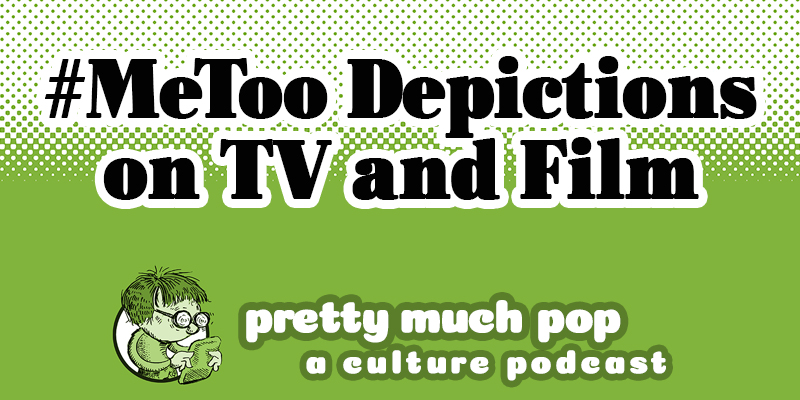
These stories are all heavily watched, which means they’re entertaining: The 2019 film Bombshell (about the predations of Roger Ailes), Apple TV’s The Morning Show (about a disgraced anchor), and Netflix’s Unbelievable (about reporting rape) and 13 Reasons Why (about teen suicide resulting from sexual assault). But what’s “entertaining” about sexual assault and harassment? What makes for a sensitive as opposed to a sensationalized portrayal?
Erica, Mark, and Brian consider which stories work and why. How much divergence from true events is allowable in Bombshell or Confirmation (about Anita Hill)? By having characters interpret their situations (Erica gives an example from the show Sex Education), are writers essentially telling audiences how to feel about their own experiences? Should certain depictions be ruled out as potentially triggering, or is it good to “bring to light” whatever terrible things actually happen in the world? Should shows delve into the psychology of the perpetrator (maybe even treating him as a protagonist), or must the message be wholly and unambiguously about the victim?
-
“Hollywood Taboo: A Review of Bombshell” by Spencer Hagaman
-
“We’ve Seen Sexual Assault on TV Before—But Never Like This” by Jessica Radloff
-
“TV’s Reckoning with #METOO” by Emily Nussbaum
-
“From Harvey Weinstein to the New #MeToo Movies, True Justice Still Remains in the Realm of Fantasy” by Mary Elizabeth Williams
-
“The Progress and Pitfalls of Television’s Treatment of Rape” by Maureen Ryan
Here’s that weird scene where Jennifer Aniston and Billy Crudup sing on The Morning Show.
If this topic is too depressing, check out our episode #39 from last week about what to watch on TV during quarantine:
Learn more at prettymuchpop.com. This episode includes bonus discussion that you can only hear by supporting the podcast at patreon.com/prettymuchpop. This podcast is part of the Partially Examined Life podcast network.
Pretty Much Pop: A Culture Podcast is the first podcast curated by Open Culture. Browse all Pretty Much Pop posts or start with the first episode.


the main thing that podcasts like these impress upon me isn’t whatever the cautionary tale of the day they happen to be espousing might be but rather what their incidental banter inadvertently reveals about themselves hence and ergo vis a vis the masses-at-large.
within the first 3 minutes i was made aware of, and because of what i was made aware of, i was also made slightly nauseous.…of the fact that these average grown up responsible adults believe literally everything the TV tells them.…every ort of utterance. And they are average true-blue typical ‘Murkins, i’m sure. i find this deeply disturbing.